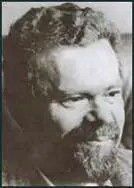Mervyn Jones

Mervyn Jones was born in a house close to Regent's Park on 27th February 1922. His father, Ernest Jones, was the first English-language practitioner of psychoanalysis and eventually became President of both of the British Psycho-Analytical Society and the International Psychoanalytic Association. Sigmund Freud lived with the Jones family in London after fleeing Nazi Germany.
Jones was educated at Abbotsholme in Derbyshire. While at school he read the work of John Strachey and this turned him into a Marxism. In 1938 he joined the Communist Party of Great Britain.
In August 1939 Jones enrolled at New York University. He returned to London and joined the British Army in November 1942. Promoted to the rank of second lieutenant in an anti-tank artillery regiment he took part in the D-Day landings. In October 1943 Jones was taken prisoner and he spent the rest of the Second World War in a POW camp in the Rhineland.
In 1947 his friend, Claud Cockburn arranged for him to work for the Daily Worker. This came to an end when he left the Communist Party of Great Britain in 1951. He joined the Labour Party and immediately identified with the left-wing of the party led by Aneurin Bevan. He was also a regular contributor to several newspapers and magazines.
Jones published his first novel, No Time to Be Young in 1952. He continued to work as a journalist and in 1956 Michael Foot persuaded Jones to become a staff member of Tribune, a post he held for the next four years. He continued as the newspaper's theatre critic and he also wrote about politics for the New Statesman and The Guardian.
Jones continued as a novelist. His most important books included John and Mary (1966), A Survivor (1968), Holding On (1971), Joseph (1972), Twilight of the Day (1974), Strangers (1974), Today the Sruggle (1978) and The Pursuit of Happiness (1977). Jones wrote an autobiography, Chances (1987) and a biography, Michael Foot (1994).
Mervyn Jones died in Brighton on 23rd February, 2010.
Primary Sources
(1) Geoffrey Goodman, The Guardian (26th February, 2010)
Perhaps the most poignant aspect of the career of Mervyn Jones, who has died aged 87, was that he became far better known as a fine journalist, and the biographer of Michael Foot, than the talented novelist he always craved to be. From an early age, he yearned to write the great novel, possibly the epic poem. He looked upon WH Auden as his distant jewel, and in 1939, when he and his mother moved to New York, Mervyn attended Auden's lectures on poetry with a conscious ambition to follow in the great man's footprints.
Alas, the two crafts of journalism and novel-writing often seemed at war within Mervyn. His closest friends and admirers recognised this only too well. We grew to know that a bad-tempered Mervyn in journalist mode signalled that a new novel was in the works.
As a chronicler of his times, Mervyn was hard to match. He was a brilliant descriptive reporter on almost any subject, from the condition of the Sami society in northern Finland (the Lapps of Lapland), Paris around the time of the events of 1968 and the problems of the South Wales coal industry. He reported across the spectrum, working for the New Statesman and Tribune (his only staff jobs as a journalist), and as a freelancer for the Guardian.
Offers of full-time jobs came with regular frequency from a range of papers including the Daily Express and the Observer, but he resisted the temptation in case it trapped him and damaged the search for that holy grail, the great novel.
